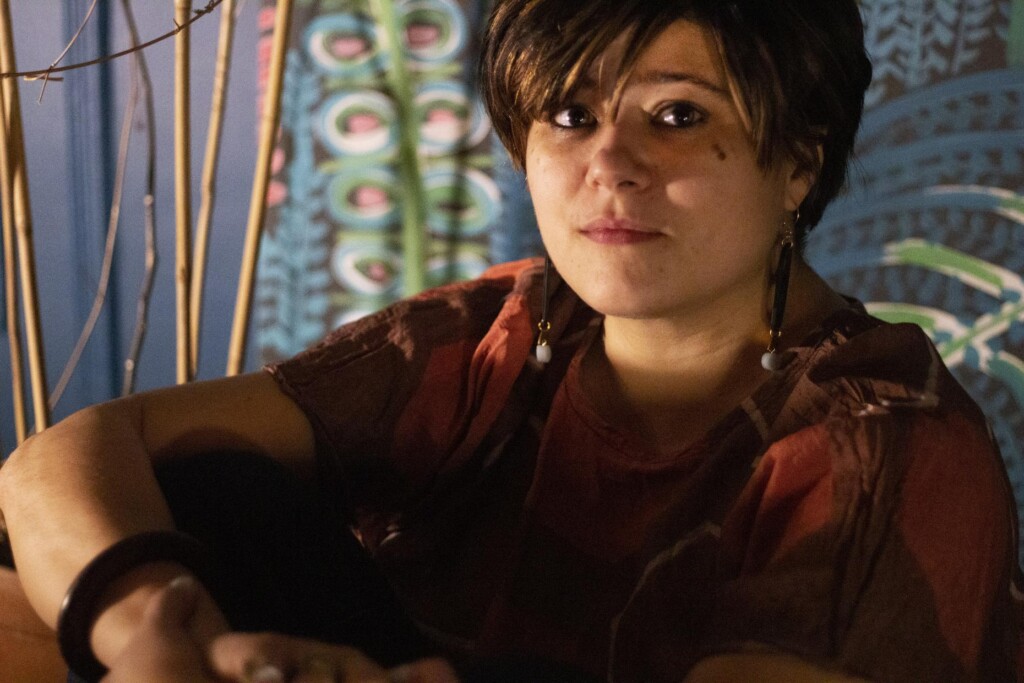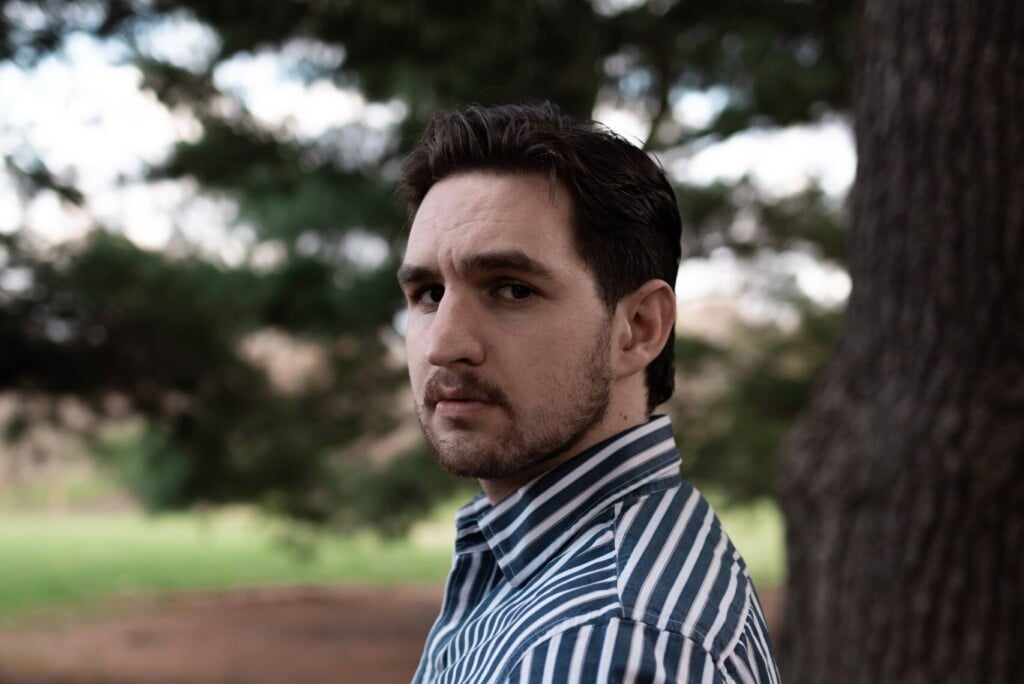Alana Casanova-Burgess on the musical roots and branches of Puerto Rico
Podcast La Brega returns this week
In 2021, the debut season of WNYC podcast La Brega garnered best-of-the-year mentions from the likes of The New Yorker and The New York Times, with its tales of “the struggle” and how it relates to Puerto Rico described as creating “a transporting sense of place” and full of “[r]ich and under-examined American histories […] in its stories of pothole fillers, political activists and basketball heroes who navigate their versions of the struggle, many of which trace back to the very idea of a self-governing territory in the United States.”
Hosted by former On the Media correspondent Alana Casanova-Burgess, La Brega and its team of journalists craft a podcast that is expansive in how many stories link back to the island. In its second season, starting today, the show gains the subtitle The Puerto Rican Experience in Eight Songs and begins by relating “the local roots of the world’s most streamed artist, Bad Bunny, in a new way—how his music fits into a long lineage of uncompromising Puerto Rican spirit through song.”
It’s a fascinating lens through which to focus the series, so we reached out to host and producer Alana Casanova-Burgess to discuss La Brega and how it has evolved ahead of the show’s second season.
The Pitch: During your time with WNYC and On the Media, what did you learn that led to La Brega?
Alana Casanova-Burgess: Oh my gosh, so much. I mean, I could answer that question in the technical sense, like writing and editing for audio and for the ear. But you know, at On the Media, we—I’m still using “we,” even though I haven’t worked there in two years—but we think so much about why we talk about different subjects and the agenda-setting role that media has in that. Where people pitch a story, and your editor asks you for the peg and that kind of thing. That’s how conversations and discourse are shaped in this country and around the world. That’s how the press works.
And so, when La Brega came into being, it came into being around questions like, “Why can’t we just talk about ourselves on our own terms? The first season, in a strange way, a lot of the episodes are super-timeless and still relevant because we were just interested in, like, “What are we curious about? What are the histories that we wanna dig into without having to cater to a peg and what’s in the news today?”
Working at On the Media set the stage for the show, and La Brega grew out of a project at On the Media. It was initially conceived of as a spinoff show like, “What would happen if we could just talk about ourselves, on our own terms?” The second season continues in that spirit. We get to set the agenda. We don’t have to pitch to an editor who’s gonna ask, “Why now?”
What happened while making the first season of La Brega that you applied to the second? Was there anything you learned during the first season that changed how you approached the second?
Whenever you do a big project, immediately afterward, I think perhaps you think like, “Oh man, I wish I could do that again, knowing what I know now,” and so the gift of the second season is that we get to implement all the lessons production-wise for the second. We’ve learned how to craft an episode in a second language. I say that because this season, especially, some of the episodes we produced in Spanish first, and then we’re doing the flip into English.
It depends on who’s working on it and what language they think in primarily. When we think about the story, we’re also thinking about what resonates emotionally with people, and often that is true, whether you are speaking one language or the other, a thing that’s gonna hit people in their heartstrings—it’s probably gonna work, regardless of what language you’re speaking.
The show covered a wide variety of topics in the first season. Why did you approach the second with this musical focus?
Well, mainly because there’s so much to celebrate. I say this in the first episode, but Puerto Rico punches above its weight musically. If you think about salsa, it’s so Puerto Rican. You think about hip-hop, we’ve influenced that too. Jazz—like, we’re so good. And I say that as a person who does not play any instrument, right? But I recognize that it wasn’t invented in Puerto Rico, but we elevate the form. It’s a way to celebrate that kind of excellence.
The first season, I’m super proud of it, but I walked away from it feeling like there’s joy in Puerto Rico, too, and we could lean into that—and that’s not to say that the second season is all fun, right? These are serious songs with serious messages, and we dig into that.
Then the other thing is, I don’t wanna talk about Puerto Rico existing in a vacuum. We’re putting the—I don’t wanna say island because I think it’s bigger than an island—but we’re putting the Puerto Rican experience in conversation with other countries as the gateway between the U.S. and Latin America. One of the ways that we have that conversation is through music. We’re in dialogue with Cuba musically. We’re in dialogue with the Dominican Republic. We’re in dialogue with Columbia. There are these ways in which that discourse happens through song.
You can even see it in the show art this season. We widen the frame a little bit more, and we have other little islands in the background, and we have a little city there that could be New York. We’re trying to think beyond just the confines of the geographical space, and music is the best way to do that.
I’m really thinking of something like Miguel Zenón’s Música de las Américas, which came out last year and is very much a commentary on 500 years of indigenous culture—
And super Puerto Rican!
And super Puerto Rican, and also bringing in all of these other musicians to comment on the Americas as a whole, as opposed to North America.
Precisely. We could talk about Residente as someone who has also done that and who also has songs that try to weave different traditions in. We have an episode about the song “Las Caras Lindas,” written by Tite Curet Alonso, a Puerto Rican man, that has been covered all over the hemisphere.
We talked to Susana Baca in that episode, who’s an Afro-Peruvian woman who probably has the quintessential cover of that song, and it works so well in the rhythm that she sets it to, and we also have a Puerto Rican mariachi singer in that episode as well, talking about how well the beat translates. We’re trying to think about how this music resonates in other countries.
It’s not like Puerto Rico invented talking about race in that song. It’s that that song is so iconic and timeless and also spaceless—but for geography. We can talk about where it hits, right?
Leila Cobo’s Decoding “Despacito” limits itself to covering Latin music in 20 songs of the last 50 years and some things had to be left on the cutting room floor. How did you pick eight songs for one season?
How did we do it? Very painfully. I mean, we could have done an infinite number of episodes, truly, but I think we were trying to curate something. We didn’t wanna do too many salsas. We were thinking about which reggaeton we should really do.
Also, these episodes, yes, they’re about songs, but we give them very different treatments. Some of them are about the actual song itself, and then other times it’s like, there’s a story behind this song that you can think about—some kind of bigger issue—and so we were also trying to hit different notes [laughs] there, as well. We don’t wanna do too many episodes that are like, “This is how the song was written, and here’s a close read of the lyrics.” We were also trying to hit different registers there.
We also were just curious about things. We’d hear a pitch for an episode, and if we were still thinking about it a couple of days later, like, “Wow, you know, we’ve never really talked about this issue,” but yeah, it was really hard. We could go on forever, but I think we just tried to do stuff that the team—which is an eclectic, interesting group of people—was hitting and firing on some kind of cylinders for them, and put it together, and hope it does the same for listeners.
The second season of La Brega is out Thursday, January 26, from WNYC Studios.






